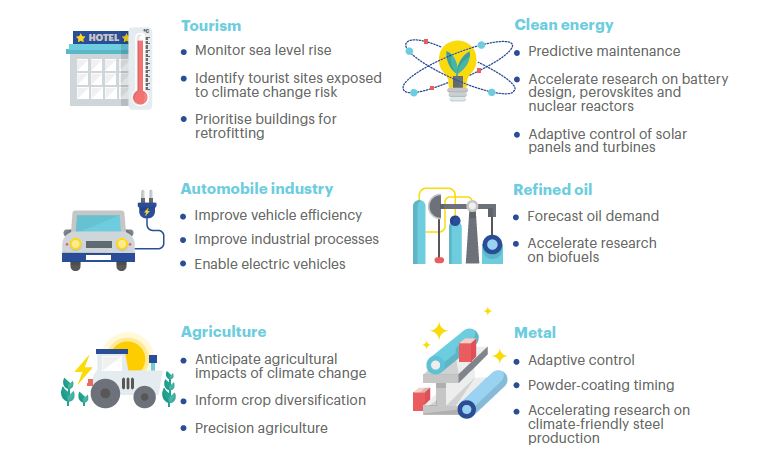With climate change representing an existential threat to natural habitats and human communities alike all over the world. Now is the time for action. Accordingly, as well as the critical social and ecological need, there now exists a vertical alignment of political will and ambition to act against the growing climate emergency. To comply with the Paris Agreement and achieve the 2030 targets it set out, the world must reduce greenhouse gas (GHG) emissions by 25-55% compared to 2018 levels. This is the decade of climate action, and there is a need for global action backed up with regional, national and local responses.
To help meet this challenge, around the world, artificial intelligence (AI) researchers and practitioners are currently pooling resources towards solving the complex issues that are feeding the climate emergency. The complexity of the crisis, coupled with the need for exponential action, makes AI an excellent tool to help meet the globally mandated targets and limit global warming. Climate change is now a field that is continuously pushing boundaries through the development and evolution of, both in terms of sophistication and maturity, existing computer science tools and data heavy analytical capabilities.
This report shows that the urgency of the current situation provides Spain with an opportunity. Spanish climate change research has a solid reputation internationally, thanks to high levels of success. Further to this, Spain enjoys good access to AI and machine learning expertise and talent, with numerous sources of funding available to Spanish projects. In fact, there are already a number of pioneering Spanish projects applying AI to the climate crisis and seeing high levels of success. Therefore, the urgency of the climate emergency offers Spain a unique opportunity to take the lead globally on applying AI to climate change mitigation.

